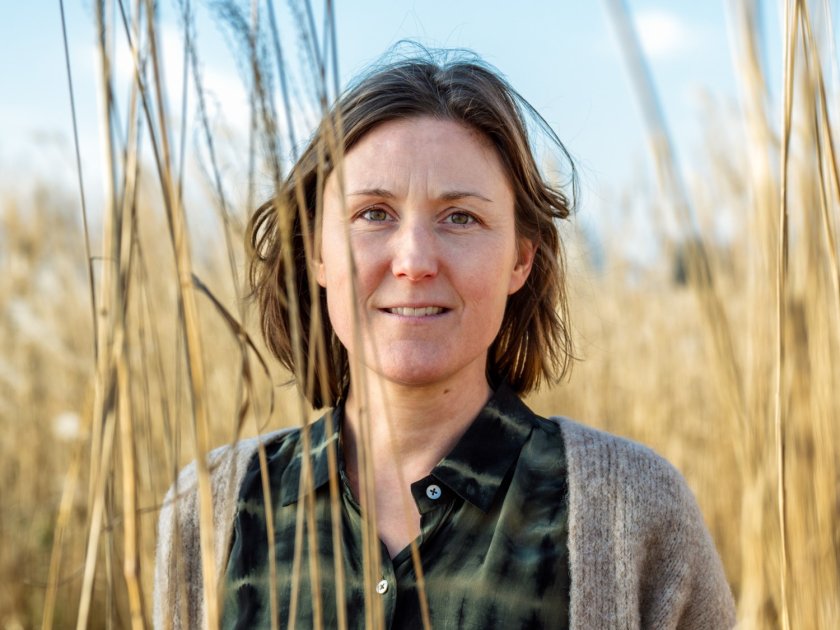
Longread
The Netherlands already phased out battery cages and mink fur, what can that teach us about future transitions?
Gas extraction in Groningen, mink fur, cramped battery cages, pulse fishing. The Netherlands has phased out controversial practices in the past. However, research into the process of phasing out has so far been sparse.
He regretted it. Sicco Leendert Mansholt, minister and later European Commissioner for agriculture, was a driving force behind scale expansion and agricultural innovation until the 1970s. At the end of his career, he saw the downside of this development: environmental pollution, resource depletion, and deteriorated animal welfare.
Mansholt might have become a victim of what Nina de Roo and her colleagues call “innovation bias”. De Roo researches societal acceptance of change, where novelty often plays a significant role. “We seem naturally inclined towards newness,” she says.

“We often seek to solve our problems with innovations. A new technology or clever invention is sexy and inspiring, but ironically, many current issues stem from past innovations, such as combustion engines, plastics, or PFAS.”
To shift towards sustainable energy, sustainable food production, and a circular economy, it's not enough to come up with innovations. We must also abandon old practices: fossil fuels, excessive meat production, fast fashion. Yet, we know far less about stopping than we do about inventing.
Eight lessons about phasing out
De Roo and her colleagues Else Giesbers and Rianne van Zandbrink noticed the lack of knowledge about phasing out when examining Dutch agricultural policy through a transitional lens. “The most common solution proposed was further optimization. Stables designed to reduce nitrogen dioxide and ammonia emissions, for example. Reducing livestock numbers wasn't discussed.”
Upon deeper research, the three found that transition and environmental scientists had rarely studied phase-outs either. “Yet, they regularly emphasize its crucial role for genuine transitions.”
That left the scientists with a question: how to go about it, phasing out practices we would like to quit? To help find an answer, De Roo and her colleagues studied three cases of “undesirable practices” that the Netherlands has already retired, namely: gas extraction in Groningen, mink fur and battery cages. They also studied pulse fishing, a unique case of phasing out that holds valuable insights into justice and governance.
Here are their eight lessons about phasing out.

1. Deadlines matter but they have to be enforced
In 1999, the Netherlands passed a motion to phase out mink farming. Public opposition had been growing, fanned by animal rights organization Bont voor de Dieren. However, it took another 22 years before the last mink farm closed. “In every case, phase-out began only when legislation or court decisions established a clear endpoint for the transition,” explains De Roo.
In mink farming, the 2013 ban on fur farms wasn’t enough. A court case in 2016 finally set the phase out in motion. “The judge confirmed the validity of the deadline: farms had until 2024 to dissolve their companies.” With the deadline firmly in place, farms began to reduce production immediately, even though they had eight years left to close up shop.
Now, sixteen European countries have banned mink farming, and a Europe-wide ban is under consideration.
2. Our willingness to stop is strongly determined by emotion
“As a scientist, I too catch myself thinking: if we'd just understand the problem thoroughly, that will move people to action,” admits De Roo. Practice often shows otherwise. Pulse fishing offers a striking example.
Electrocution. That is the word that the French environmental NGO BLOOM consistently used to refer to pulse fishing. The NGO even staged a performance in which dancers used intense, pained movements to represent what it would be like for fish to be caught in an electrically charged fishing net.
“But electrocution isn’t actually what happens,” says De Roo. “The electricity causes muscle contractions. Those are probably not pleasant either, but they aren't directly fatal.” However, the exaggeration worked: the European Parliament voted overwhelmingly for a ban in 2018, enacted in 2021.

3. The private sector pushes for adaptation instead of abolishment
De Roo empathizes with businesses' stance during phase-outs. “The private sector naturally seeks to preserve the status quo,” says De Roo. “It”s akin to evolutionary adaptation. Companies historically adapt by improving efficiency and complying to new rules. If fundamental change threatens their sector, it's not strange for them to push discussion into the direction of technical solutions. Everything is at stake for them.”
The nitrogen discussion reflects this tendency, thinks De Roo. “Lely is developing a nitrogen-reducing barn called the Lely Sphere. It should separate cow urine from manure, preventing nitrogen from entering the air. Such an innovation promises continued large-scale production. Naturally, that’s appealing. However, this solution only address symptoms, not root causes.”
On top of that, Lely’s stable might push other solutions out of the picture. “It is a very expensive measure—up to €750,000 per stable. You can only spend the money once, and a Lely Sphere depletes the budget for transitions.”
4. National governments initially wait and see
How do sectors can heavily influence phase-out discussions? That has something to do with the stance of the Dutch government. “Our government often leaves problem-definition and solutions to the industry. Not every European government takes that route. France and Denmark, for example, have progressed faster in phasing out the use and dependence on pesticides.”
Government hesitancy can allow for the conservative reaction of the sector to dominate the conversation. “During growing criticism of battery cages, authorities stayed passive. The poultry sectors determined the stakes of the discussion, steering it towards technical details, like cage size, instead of looking into a possible ban. The government even ignored a couple of substantial advisory reports that advised the contrary.”
“Government hesitance is understandable,” says De Roo. “Governments are also tasked with providing stability. That can put a break on progress, especially if the new direction is still controversial.”

5. Economic interests may oppose other public interests
The sector’s interests often align with the economic interests of the national government. “Moreover, in our country, the business sector is well-organized and represented,” emphasizes De Roo. “These factors together ensure that interests such as employment or the competitive position of the Netherlands usually carry more weight than other public interests.” Can she give an example of those interests? “Good health, or an animal-friendly food system. Those interests receive less attention.”
Of course, a strong economy enhances the general welfare of Dutch citizens, but specific citizens, animals, and ecosystems risk being overlooked in that calculation. “Local governments pay more attention to these issues. Take the municipality of Groningen, for example. They saw firsthand how their residents grew increasingly fearful. What if gas extraction caused an earthquake so powerful that their houses would collapse during the night? Only after the municipality raised alarm, did the national government follow suit.”
6. Research could be more diverse, and above all more transparent
“When a practice or technology becomes controversial, initially there is often dispute about the facts,” explains De Roo. “The studies conducted at that stage to gather information are frequently commissioned by parties with a strong vested interest in the outcomes: lobbyists, advocacy groups, and activist foundations.”
The results of such research are often one-sided and biased. “During the debate around abolishing mink farming, for instance, both the Dutch Federation of Fur Animal Farmers and the animal rights organization Bont voor de Dieren conducted studies about the anticipated economic impact on the sector. The results—unsurprisingly—differed by tens of millions.”
The scientists therefore advocate transparency: clearly disclose who funds the research and thus shapes the questions being asked. “We also argue for diversity: fund a variety of perspectives, particularly at the start of any potential phase-out process. Make sure the “unusual suspects” are represented too.”

7. Emotional consequences are often overlooked
Although emotions are decisive in reaching a ban, once the phase-out process has started, there is little room for feelings. “Phasing out has an emotional side too. It involves friction and resistance. Values clash. These emotions receive little attention in policy-making, which may ultimately lead people to express their feelings through actions like driving tractors to the provincial government offices.”
“Among the Groningen population, frustration and distrust toward the government increased because the emotional consequences of gas extraction went unrecognized for too long. People did not just suffer damage to their homes; they also experienced stress and anxiety. It took until the parliamentary inquiry of 2021 before these aspects became part of the conversation and were taken seriously.”
“Similarly, around the banning of pulse fishing, emotions ran high. Fishermen who had invested in the new technology felt betrayed—not just because they lost a lot of money, but because their identity as fishermen came under pressure and family businesses faced the risk of disappearing.”
8. Discussions focus primarily on human winners and losers
In the report, De Roo and her colleagues line them up. Mink farmers and poultry farmers were compensated or given the opportunity to recoup their investments. Dutch fishermen were not compensated, but they could still recover their investments. Additionally, fishing companies that were no longer sufficiently profitable after the ban received financial assistance to cease operations. Compensation for Groningen residents is part of a complex process.
What stands out here? In all the documents reviewed by De Roo and her colleagues, the emphasis was primarily on the consequences for the people involved. “Animals and the environment were largely overlooked. Only in the case of pulse fishing was a study conducted on the effects of nets on various fish species. But even that study wasn't approached ethically—the question wasn’t: is this good, or fair?”
It is difficult to think of any contemporary issue that doesn't involve animals, plants, or ecosystems. “With this point, we wanted to remind the readers of our report to include these aspects in future plans.”